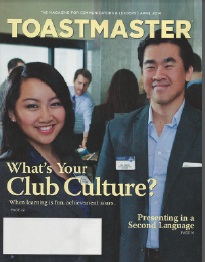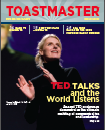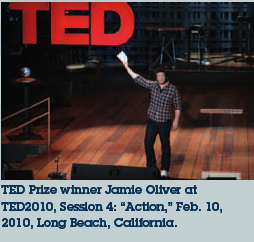Leveraging Improvisational Techniques
in Toastmasters and Life
By Craig Harrison, DTM, PDG
Road closed. Forget your briefcase. LCD projector breaks. Flight cancelled. Drycleaners loses your lucky suit. Computer crashes. Co-workers caught in traffic. Road flooded. Power outage. Missing page of the instruction manual. Run out of gas. Spoiled mayonnaise. Lose your car keys. Picnic rained out.
Despite our best laid plans, practice and preparations, much of what we do in Toastmasters — and in life — is improvised! Hence the value of Table Topics, where we think on our feet, formulate responses in the moment, and then respond cogently in an unrehearsed manner.
The ability to improvise in life helps us in job interviews and business meetings, at networking events and town hall meetings, as well as any time we encounter strangers, get lost or receive unexpected phone calls.
Every time a flight is delayed, a key employee calls in sick, a road is closed, we tear a piece of clothing irreparably while dressing, a piece of equipment fails or the boss changes his or her mind, we improvise! And if we don’t, we often suffer the consequences. Our ability to improvise…what a valuable skill to possess!
And in the process of any improvising, we develop flexibility, sharpen problem-solving abilities, heighten self-awareness of skills and capabilities, develop our creativity, foster collaborative skills, deepen trust with others and more.
IMPROV defined:
An act of spontaneous invention;
That which is improvised. Impromptu.
Theatrical techniques borne of the stage.
Improv Foments Discovery
Did you realize improvisation often leads to innovation and invention, new partnerships, improved processes and other exciting outcomes in our work, play and family life?



